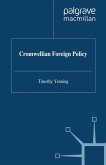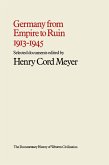Napoleon III's motives for intervening in Mexico in the 1860s were consistent with his foreign policy, which was based on his belief that free trade was the best foundation for peace. He saw the establishment of a friendly government in Mexico as an opportunity to expand that policy to encompass the world by ensuring European access to American markets, and preventing monopoly by the United States. His attempts to achieve this, however, were thwarted by his representatives in Mexico and the suspicions of his neighbours.
Dieser Download kann aus rechtlichen Gründen nur mit Rechnungsadresse in A, B, BG, CY, CZ, D, DK, EW, E, FIN, F, GR, HR, H, IRL, I, LT, L, LR, M, NL, PL, P, R, S, SLO, SK ausgeliefert werden.
'Professor Cunningham's well-researched and well-written book is a valuable and over-due addition to the revisionist history of the French Second Empire. In the literature of the French intervention in Mexico during the 1860's it is the first to focus on the role of Napoleon III and to examine it both with minute attention to the available documents and within the overall context of the emperor's foreign policy ideas and the many other concerns which claimed his attention. Napoleon III has not always been studied fairly and objectively. Here he is, and with considerable success.' - William E. Echard, Professor of History Emeritus, Glendon College, York University (Toronto)









